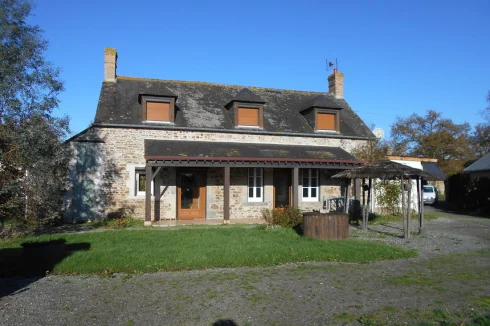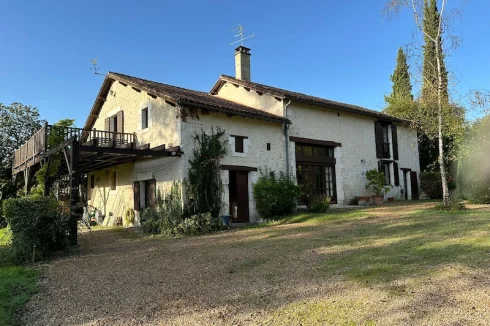Ryanair in Dogfight Over France
Friday 01 April 2011
Ryanair has withdrawn from Pau airport over a dispute concerning marketing support, but it is not the only airline to receive public financial assistance.
Last month the Chambre de commerce et de l'industrie (CCI) at Pau decided that it was not prepared to agree to the demand by Ryanair for an increase in the annual marketing support from €1.4m to €1.5m.
Since Ryanair started flights out of Pau in 2003 they have received nearly €5 million from the airport.
As a result of the decision of the CCI Ryanair promptly announced it would quit Pau for the neighbouring airport of Lourdes-Tarbes. They are also likely to have offered cash incentives to Ryanair, but no public information on the amount is available. The airport is also a bit off the beaten track, so it is likely to be a less than an optimal solution for Ryanair.
The CCI at Pau were smart enough to have arranged for Cityjet, the Irish subsidiary of Air France, to step into fill the slots left by Ryanair, with flights direct into London City and other destinations. No information is available on whether any financial support has been provided to Cityjet to secure the deal.
Nevertheless, there remains some discontent with the decision by the CCI amongst leading politicians in the region, as they consider the wider economic benefits of the Ryanair deal was substantial, and that Cityjet are unlikely to be able to match their level of service or their prices.
A very similar situation occurred last year in connection with Angoulême airport in the Charente department, when local politicians decided enough was enough with demands for more money from Ryanair, as a result of which Ryanair terminated their service to the UK.
According to French press reports, Ryanair are being sued by the Conseil Général de Charente for breach of contract.
When a new neighbouring airport opened last at Brive on the Limousin/Dordogne border, the operator selected for flights to London was CityJet.
Subsidies to Others
However, despite the controversy surrounding the financial support received by Ryanair from regional airports, they are not the only airline to receive such support.
Historically the level of support given by local councils and central government towards regional routes has run into hundreds of millions of euros, a position that continues today, although without a great deal of transparency.
The local council in Périgueux (Dordogne) recently acknowledged that they provide a subsidy to the French owned operator 'Twin-Jet', based in Aix-en-Provence, which runs regular flights from Périgueux-Bassillac airport to Orly Paris. Last year it received €776,268, some of which is refunded by the French government. Since the agreement was signed in 2008, it has received around €1.7m in public sector financial support for this route on which the airline transports less than 10,000 passengers a year.
The airline also receives public service subsidy support on other routes. Other airlines, including Brit Air, Airlinair and Air Guyane, receive similar subsidies.
These subsidies are based on the principle of the continuité territoriale, the objective of which is to reinforce the cohesion of the different parts of the country and overseas territories.
Neither should it be forgotten that the national airline Air France is only in existence today because of a bailout by the French government in the 1990s. The airline also continues to receive public service financial support from the government for so-called 'uneconomic' routes.
Air France have filed a complaint to the European Commission on the subsidies received by Ryanair, on which a pronouncement from the EU is still awaited.
Low Cost Competition
Apart from threats to marketing support, Ryanair is also facing greater competition from other low-cost operators, notably Easyjet and subsidiary companies of Air France.
Transavia, the low-cost subsidiary of Air France-KLM, are planning to locate aircrews away from Paris into four main cities – Toulouse, Bordeaux, Marseilles and Nice – from where they plan to offer domestic flights and other short haul journeys.
By locating the airline outside of Paris, and using the pilots to fly shuttle flights on a point to point basis, the company removes the cost of accommodating aircrews away from their homes.
Although the pilots initially stated their public opposition to such a change, Air France recently announced that agreement had been reached, with the prospect of savings per year of around 15%.
In January, Ryanair closed its base in Marseilles, as a result of a legal dispute with the French social security authorities over work contracts.
On the same day that Ryanair announced their departure Transavia announced that they would start flights from the terminal.
Air France are also linking up with other airlines to take on Ryanair. Recently, for instance, they signed codeshare agreements with Flybe on a number of existing and new routes between France and the UK.
Ryanair is also facing growing competition from Easyjet, who now have bases at Orly and at Lyon, and who have substantially expanded their service to the UK and other European destinations from France. Their relatively new Chief Executive, Carolyn McCall, shows every sign of having grand ambitions for the company.
Related Reading:
Thank you for showing an interest in our News section.
Our News section is no longer being published although our catalogue of articles remains in place.
If you found our News useful, please have a look at France Insider, our subscription based News service with in-depth analysis, or our authoritative Guides to France.
If you require advice and assistance with the purchase of French property and moving to France, then take a look at the France Insider Property Clinic.





